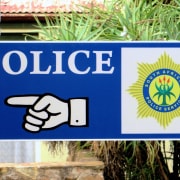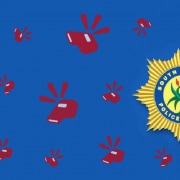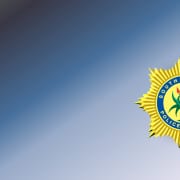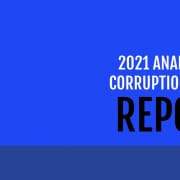|
Getting your Trinity Audio player ready...
|
Image: ISS Africa
By Melusi Ncala
First published on News24
In my own right, I fancy myself to be an activist – an advocate for change, toiling at the coalface of systemic injustice and what seems to be the pedestrian status quo. Having to address social ills is a fate I have had to accept and perhaps it is due to my disability, my race, my history as a person living in South Africa.
Notwithstanding, I cannot deny the attributes instilled into me by the family and colourful communities that I formed part of as I journey through life. Consequently, these personal traits have become the tools of the trade that I have signed up for.
An often-understated fact is that the outputs of the work we do in the social justice sector, the orations at protests, the presentations at conferences and in various media, the writing, photographing, audio recording and publishing of research studies, the journalistic articles and think pieces, are mainly underpinned by compassion, fortitude and perseverance.
It cannot be any other way; for how else can we legitimately claim an understanding of the hardships experienced by those who appeal for our help? Thus, before I assume my duties and responsibilities at Corruption Watch, I ask my higher power to provide me these tools, for I am human, and I stumble.
Corruption Watch podcast
My recent involvement in the production of a Corruption Watch podcast on police graft proved to be a reflective process awash with vivid memories and raw emotions.
It is on the backdrop of this piece of work that I was palpably reminded of what some of my colleagues and friends, alongside the thousands of whistleblowers, who have reported acts of corruption and criminality to the organisation, endure on a daily basis at the hands of those to whom power has been entrusted.
The podcast is an informative resource that not only serves as public education material, but also underscores the plight of whistle-blowers. It tells a story of a community of activists and law enforcement personnel, who are acutely insightful and nuanced in their comprehension of police corruption issues, and a complainant that suffered immensely at the hands of seemingly unscrupulous officers and officials.
Essentially, it is a living portrait of almost 4 000 corruption reports relating to police services in South Africa, and highlights the vast acts of abuse of authority, bribery-extortion, and dereliction of duty that many ordinary people are exposed to when dealing with the police.
One of the prominent points emanating from this short production is the police institution’s paramilitary-style culture, rooted in colonial and oppressive thinking. At face value, it can be witnessed in the ranking and titling of officers’ and officials’ positions. At the core of it, there is an abuse of entrusted power, leading to an imbalance of power between the general public and those who are in uniform with a gun and badge.
Gratuitous display of power
To accentuate this viewpoint, outside the countless corruption cases that I have analysed, I recall a news media interview that I participated in when a woman spoke of a frightful incident with a member of the police service. While travelling in a vehicle at night, she was apparently stopped by an officer for a minor indiscretion. The woman drove through a red traffic light for fear of being hijacked – but that meant little to the gun-pointing officer who was soliciting a bribe from the anxious motorist.
This incident evoked memories of a six-year-old me in the dusty streets of Katlehong – a township in the eastern parts of Johannesburg. As a partially-sighted child then, I was tagging along with a couple of neighbourhood kids and our big task for the day was to pick berries from a neighbour’s tree. While hard at work, I heard the running footsteps of a person coming towards us.
Distracted, I looked up and saw that it was one of the persons who resided at the house with the fruit tree. It was an uncle that was extremely caring and kind to me. “Say you didn’t see me,” he urged my small group as he ran inside. Minutes later, a police vehicle screeched to a halt, covering us in dust. Police officers jumped out, waving huge weapons at us and asking if we had seen the man.
One of the children gave him up, and the officers dragged him out the house and proceeded to kick and beat him before tossing him into the vehicle. To think that the show of force and violence was all to apprehend someone accused of stealing a food item at a shop, makes me cringe till this day.
Police need to be more human
Tragically, these experiences are not isolated to the past. Members of the public are still subjected to discourteous attitudes and behaviour. We still witness, in society, the police committing acts of brutality and gross abuse of power.
When I lament the ill-treatment of the elderly, students and poor communities, I wonder why an institution largely capacitated by people, who come from the very communities where their friends and loved ones live, could be so cruel?
Outside the posturing and careless sound bites from politicians, which encourage officers and officials to commit these atrocities, there is something to be said about the police needing to inculcate a human rights culture, because it is hardly evident at present. This is another key discussion point from the podcast.
Perhaps it is high time that we, as a society, make a conscious effort to recondition our collective thinking on safety and security, and to adopt a more humanistic approach. This applies to our police members too.
We cannot continue as usual – soliciting and paying bribes and believing that brutal actions will rid us from our social problems. Violence begets violence and the same principle applies to greed.
Melusi Ncala is a senior researcher at Corruption Watch.








